|
NEW! Download the
Conference app
for Android and iOS smartphones!
 |
Aside from the technical sessions, the 2018 CDC will feature four semi-plenary lectures and the Bode Lecture.
The Bode Lecture will be presented by Prof. Mark Spong
from the University of Texas, Dallas.
The Semi-Plenary speakers will be:
- Prof. Maurice Heemels from the
Eindhoven University of Technology.
- Prof. Sean Meyn from the University of Florida.
- Prof. Yasamin Mostofi from the
University of California, Santa Barbara.
- Prof. Rodolphe Sepulchre
from the University of Cambridge.
|
The complete Technical Program can be consulted here
Details about the proposed Workshops can be consulted here
Details about the proposed Tutorial sessions can be consulted here
Speaker:
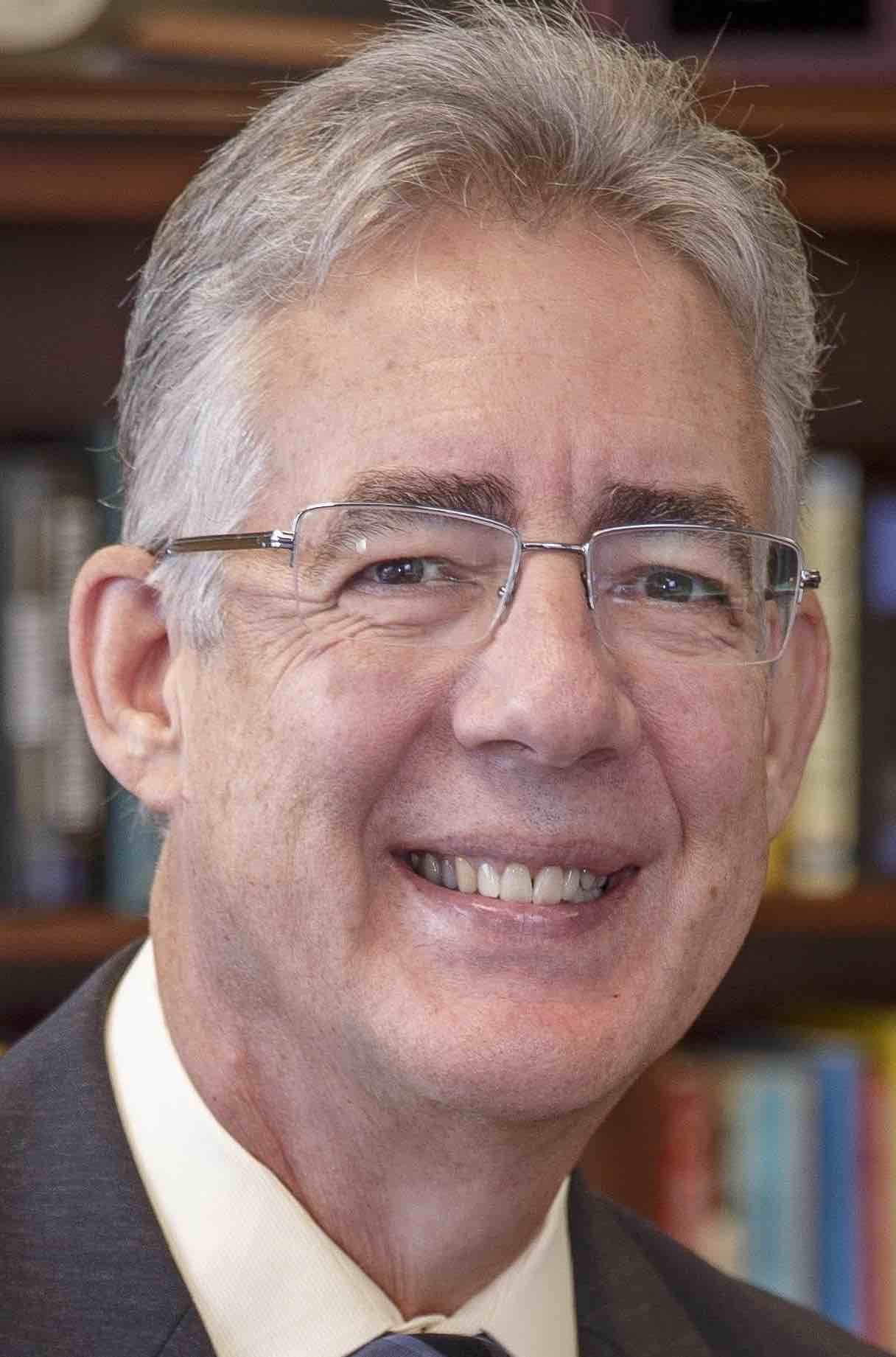 Mark Spong,
University of Texas, Dallas.
Mark Spong,
University of Texas, Dallas.
Title:
The Centrality of Control Theory in Robotics
Abstract.
The notion of what constitutes a robot has evolved considerably over the past five decades, from simple manipulator arms to large networks of interconnected autonomous and semi-autonomous agents. A constant in this evolutionary development has been the central nature of control theory in robotics to enable a vast array of applications in manufacturing automation, field and service robotics, medical robotics and other areas. In this talk we will present an historical perspective of control in robotics together with specific results in passivity-based control and control of underactuated robots. Finally, we will speculate about the future role of control theory in robotics in the era of human-robot interaction, machine learning, and big data analytics.
Biography.
Mark W. Spong received the Doctor of Science degree in systems science and mathematics in 1981 from Washington University in St. Louis. He has held faculty positions at Lehigh University, Cornell University, and at the University of Illinois at Urbana-Champaign. Currently, he is a professor of Systems Engineering, professor of Electrical and Computer Engineering and holder of the Excellence in Education Chair in the Erik Jonsson School of Engineering and Computer Science at the University of Texas at Dallas. He was Dean of the Jonsson School at UT Dallas from 2008-2017. During his tenure as dean he added four departments of engineering, nine new degree programs, and more than doubled the number of students and faculty. Spong is past president of the IEEE Control Systems Society, and a fellow of both the IEEE and the IFAC. His main research interests are in robotics, mechatronics, and nonlinear control theory. He has authored or coauthored more than 300 technical articles, five books, and holds one patent. His notable awards include the 2018 Bode Lecture Prize from the IEEE Control Systems Society, the 2016 Nyquist Lecture Prize from the ASME, the 2011 Pioneer in Robotics Award from the IEEE Robotics and Automation Society, the first IROS Fumio Harashima Award for Innovative Technologies in 2007, the Senior Scientist Research Award from the Alexander von Humboldt Foundation, the Distinguished Member Award from the IEEE Control Systems Society, the John R. Ragazzini and O. Hugo Schuck Awards from the American Automatic Control Council, and the IEEE Third Millennium Medal.
Speaker:
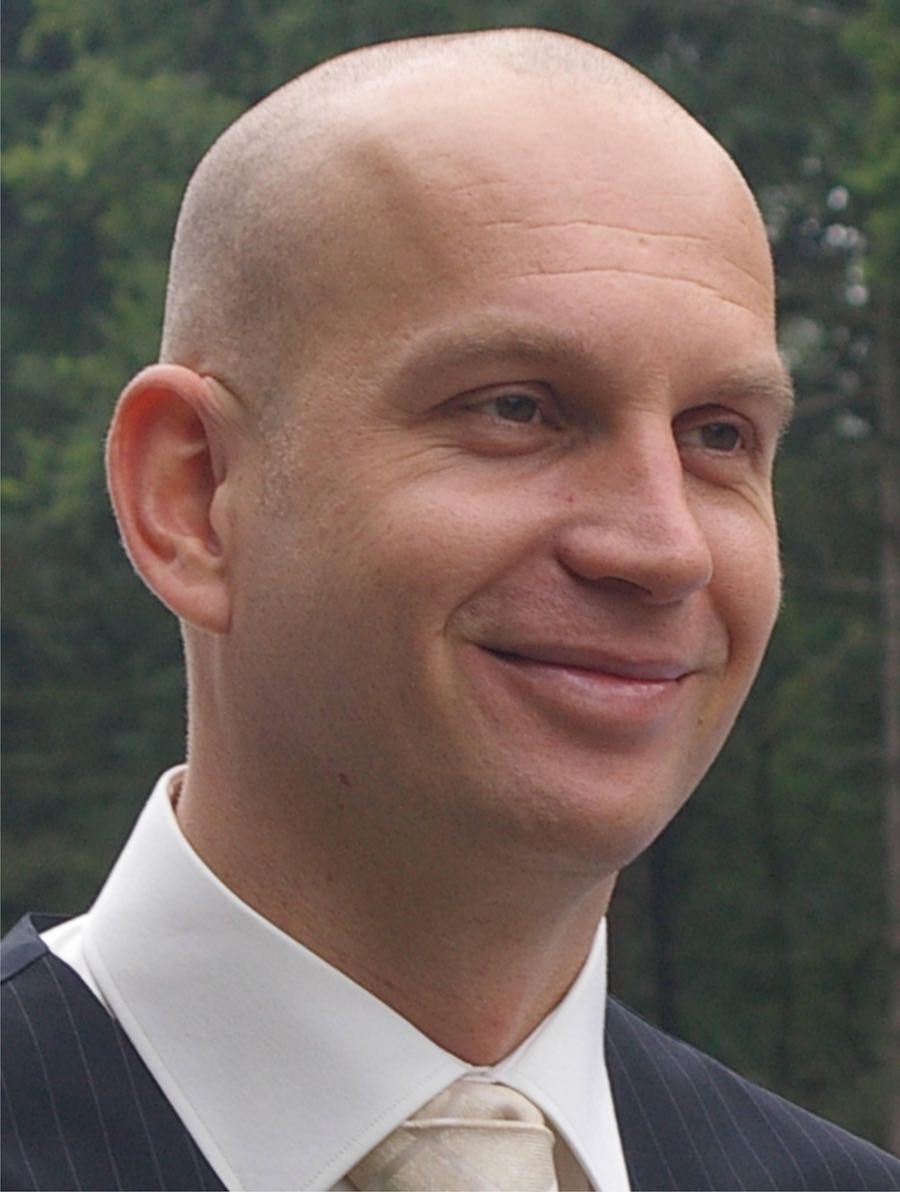 Maurice Heemels,
Eindhoven University of Technology.
Maurice Heemels,
Eindhoven University of Technology.
Title:
Resource-aware control in a hyperconnected world with applications to cooperative driving
Abstract.
Computer and communication technologies are rapidly developing leading to an increasingly networked and wireless world. This raises new challenging questions in the context of networked control systems, especially when the computation, communication and energy resources for control are limited. To efficiently use the available resources it is desirable to limit the control actions to instances when the system really needs attention. Unfortunately, classical time-triggered control schemes are based on performing sensing and actuation actions periodically in time (irrespective of the state of the system) rather than when the system actually needs attention. This points towards the consideration of event-triggered control as an alternative and (more) resource-aware control paradigm, as it seems natural to trigger control actions by well-designed events involving the system's state, output or any other locally available information: "To act or not to act, that is the question in event-triggered control." The objectives of this talk are to introduce the basics in the field of resource-aware control for distributed and multi-agent systems and to discuss recent advances and open questions. The focus will be on event-triggered control, although we will also touch upon self-triggered control as an alternative paradigm for resource-aware feedback control. We will show that various forms of hybrid systems, combining continuous and discrete dynamics, play instrumental roles in the analysis and the design of event-triggered and self-triggered controllers. The main developments will be illustrated in the context of cooperative driving exploiting wireless communication. The effects of delays, packet losses and (denial-of-service) attacks on the event-triggered cooperative adaptive cruise control (CACC) strategies for vehicle platooning will be discussed and experimental results will be presented.
Biography.
Maurice Heemels received the M.Sc. degree in mathematics and the Ph.D. degree in control theory (both summa cum laude) from the Eindhoven University of Technology (TU/e), the Netherlands, in 1995 and 1999, respectively. From 2000 to 2004, he was with the Electrical Engineering Department, TU/e and from 2004 to 2006 with the Embedded Systems Institute (ESI). Since 2006, he has been with the Department of Mechanical Engineering, TU/e, where he is currently a Full Professor. He held visiting professor positions at the Swiss Federal Institute of Technology (ETH), Switzerland (2001) and at the University of California at Santa Barbara (2008). In 2004, he worked also at the company Oce, the Netherlands. His current research interests include hybrid and cyber-physical systems, networked and event-triggered control systems and constrained systems including model predictive control. Maurice served/s on the editorial boards of Automatica, Nonlinear Analysis: Hybrid Systems, Annual Reviews in Control, and IEEE Transactions on Automatic Control. He was a recipient of a personal VICI grant awarded by STW (Dutch Technology Foundation, NWO/TTW) and is the current chair of the IFAC Technical Committee on Networked Systems. He is the founding father of a bi-annual PhD school on multi-disciplinary research topics such as hybrid, networked and cyber-physical systems educating over 600 PhD students worldwide since 2003. He was IPC (co-)chair of IFAC ADHS'12, ECC'13, IFAC NECSYS'13, and IFAC ADHS'18. He is a Fellow of the IEEE. See www.heemels.tue.nl for more information.
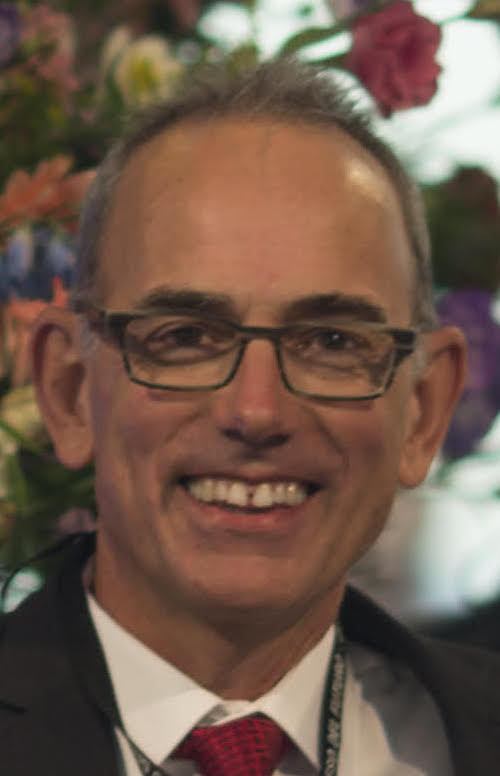 Speaker:
Sean Meyn,
University of Florida.
Speaker:
Sean Meyn,
University of Florida.
Title:
From alchemy to electricity: how our community can create breakthroughs in reinforcement learning
Abstract.
The goal of reinforcement learning is at the core of the CSS mission: computation of policies that are approximately optimal, subject to information constraints. From the beginning, control foundations have lurked behind the RL curtain: Watkins’ Q-function looks suspiciously like the Hamiltonian in Pontryagin’s minimum principle, and (since Van Roy’s thesis) it has been known that our beloved adjoint operators are the key to understanding what is going on with TD-learning. This talk will briefly survey the goals and foundations of RL, and present new work showing how to dramatically accelerate convergence based on a combination of control techniques. The talk will include a wish-list of open problems in both deterministic and stochastic control settings.
Biography.
Sean Meyn was raised by the beach in California. Following his BA in mathematics at UCLA, he moved on to pursue a PhD with Peter Caines at McGill University. After about 20 years as a professor of ECE at the University of Illinois, in 2012 he moved to beautiful Gainesville. He is now Professor and Robert C. Pittman Eminent Scholar Chair in the Department of Electrical and Computer Engineering at the University of Florida, and director of the Laboratory for Cognition and Control. During 2018 he is splitting his time between Berkeley, Stanford, NREL, Inria Paris, and Ecole Polytechnique. His interests span many aspects of stochastic control, stochastic processes, information theory, and optimization. For the past decade, his applied research has focused on engineering, markets, and policy in energy systems.
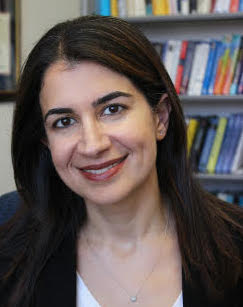 Speaker:
Yasamin Mostofi,
University of California, Santa Barbara.
Speaker:
Yasamin Mostofi,
University of California, Santa Barbara.
Title:
Robotics Meet Wireless Communications: Opportunities and Challenges
Abstract.
Recent years have seen a great progress in the area of robotics. Communication signals are also ubiquitous these days. In this talk, I will explore the opportunities and challenges at this intersection, for robotic sensing and communication. In the first part of the talk, I will focus on robotic sensing, and ask the following question "Can everyday communication signals, such as WiFi signals, give new sensing capabilities to unmanned vehicles?" For instance, imagine two unmanned vehicles arriving behind thick concrete walls. Can they image every square inch of the invisible area through the walls with only WiFi signals? I will show that this is indeed possible, and discuss how our methodology for the co-optimization of path planning and communication has enabled the first demonstration of 3D imaging through walls with only drones and WiFi. I will also discuss other new sensing capabilities that have emerged from our approach, such as occupancy estimation and crowd analytics with only WiFi signals.
In the second part of the talk, I will focus on communication-aware robotics, a term coined to refer to robotic systems that explicitly take communication issues into account in their decision making. This is an emerging area of research that not only allows a team of unmanned vehicles to attain the desired connectivity during their operation, but can also extend the connectivity of the existing communication systems through the use of mobility. I will then discuss our latest theoretical and experimental results along this line. I will show how each robot can go beyond the over-simplified but commonly-used disk model for connectivity, and realistically model the impact of channel uncertainty for the purpose of path planning. I will then show how the unmanned vehicles can properly co-optimize their communication, sensing and navigation objectives under resource constraints. This co-optimized approach can result in a significant performance improvement and resource saving, as we shall see. I will also discuss the role of human collaboration in these networks.
Biography.
Yasamin Mostofi received the B.S. degree in electrical engineering from Sharif University of Technology, and the M.S. and Ph.D. degrees from Stanford University. She is currently a professor in the Department of Electrical and Computer Engineering at the University of California Santa Barbara. Yasamin is the recipient of the 2016 Antonio Ruberti Prize from the IEEE Control Systems Society, the Presidential Early Career Award for Scientists and Engineers (PECASE), the National Science Foundation (NSF) CAREER award, and the IEEE 2012 Outstanding Engineer Award of Region 6 (more than 10 Western U.S. states), among other awards. Her research is at the intersection of the two areas of robotics and communications, on mobile sensor networks. Current research thrusts include X-ray vision for robots, communication-aware robotics, human-robot networks, occupancy estimation, RF sensing, and see-through imaging. Her research has appeared in several reputable news venues such as BBC, Huffington Post, Daily Mail, Engadget, TechCrunch, NSF Science360, ACM News, and IEEE Spectrum, among others. Yasamin is currently an associate editor for the IEEE Transactions on Control of Network Systems. She has served on the Control Systems Society conference editorial board 2008-2013.
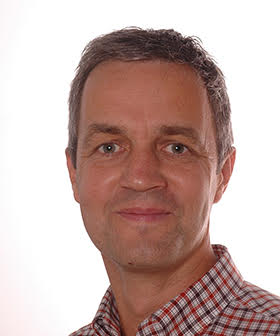 Speaker:
Rodolphe Sepulchre,
University of Cambridge.
Speaker:
Rodolphe Sepulchre,
University of Cambridge.
Title:
Control across scales by positive and negative feedback
Abstract.
Feedback is a key element of regulation, as it shapes the sensitivity
of a process to its environment.
Positive feedback up-regulates, negative feedback down-regulates.
Many regulatory processes involve a mixture of both, whether in
nature or in engineering.
This paper revisits the mixed feedback paradigm, with the aim of
investigating control across scales.
We propose that mixed feedback regulates excitability and that
excitability plays a central role in multi-scale signalling. We
analyse this role in a multi-scale network architecture inspired from
neurophysiology.
The nodal behavior defines a meso-scale that connects actuation at the
micro-scale to measurements at the macro-scale.
We show that mixed-feedback control at the nodal scale provides
regulatory principles at the network scale, with a nodal resolution.
In this sense, the mixed feedback paradigm is a control principle
across scales.
Biography.
Rodolphe Sepulchre is Professor of Engineering at Cambridge University and a fellow of Sidney Sussex College. His research interests are in dynamics, control and optimization of nonlinear problems. He is currently Editor-in-Chief of Systems and Control Letters and has been an Associate Editor for SIAM Journal of Control and Optimization, the Journal of Nonlinear Science, and Mathematics for Control, Signals, and Systems. In 2008, he was awarded the IEEE Control Systems Society Antonio Ruberti Young Researcher Prize. He is a fellow of IEEE and SIAM. He has been IEEE CSS distinguished lecturer between 2010 and 2015. A focus of his current research is the ERC advanced grant "Switchlets", motivated by neurophysiological questions and aiming at a multiresolution control theory of excitable systems. He co-authored the monographs "Constructive Nonlinear Control" (Springer-Verlag, 1997) and "Optimization on Matrix Manifolds" (Princeton University Press, 2008).
MoA13 - Control-Theoretic Methods for Biological Networks
Organizers: Franco Blanchini, Giulia Giordano
Monday 17th, 10:00-12:00, Room Splash 1-2
Abstract:
Feedback is both a pillar of control theory and a pervasive principle of nature.
For this reason, control-theoretic methods are powerful to analyse the dynamic
behaviour of biological systems and mathematically explain their properties,
as well as to engineer biological systems so that they perform a specific
task by design. This tutorial illustrates the relevance of control-theoretic methods
for biological systems. The first part gives an overview of biological control
and of the versatile ways in which cells use feedback. By employing
control-theoretic methods, the complexity of interlaced feedback loops in the
cell can be revealed and explained, and layered feedback loops can be designed
in the cell to induce the desired behaviours, such as oscillations, multi-stability
and activity regulation. The second part is mainly devoted to modelling uncertainty
in biology and understanding the robustness of biological phenomena due to their
inherent structure. Important control-theoretic tools used in systems biology
are surveyed. The third part is focused on tools for model discrimination in
systems biology. A deeper understanding of molecular pathways and feedback loops,
as well as qualitative information on biological networks, can be achieved by
studying the "dynamic response phenotypes" that appear in temporal responses.
Several applications to the analysis of biological systems are showcased.
Session Structure:
- Hana El-samad, Biological Control: The Versatile Ways in Which Cells Use Feedback Loops, 40 min;
- Franco Blanchini, Giulia Giordano, Understanding Biological Phenomena with Control-Theoretic Tools, 40 min;
- Eduardo Sontag, Dynamic Response Phenotypes As Tools for Model Discrimination in Systems Biology, 40 min.
MoB13 - Geometric Observers on Lie Groups
Organizers: Robert Mahony, Tarek Hamel
Monday 17th, 14:00-16:00, Room Splash 1-2
Abstract:
This tutorial aims at providing an introduction and perspective on new concepts
for the growing field of observer design for systems with symmetry. We will
consider the design of computationally tractable state observer algorithms for
the class of nonlinear systems for which the observer state can be represented
as an element of a mathematical structure known as a Lie group and whose
kinematics and dynamics respect this structure. Most autonomous robots can be
modelled this way due to the symmetry of the physical laws that underpin their
dynamics. There is a wide class of robotic applications for which this is the
case and the theory developed is finding substantial application. The tutorial
provides a range of perspectives on observer design for symmetric systems,
including Lyapunov and gradient design methods for Luenberger type observers.
Interested readers are referred to R.E. Mahony, J. Trumpf, T. Hamel. Observers
for Kinematic Systems with Symmetry. In Proceedings of the 2013 IFAC NOLCOS
Symposium.
Session Structure:
- Robert Mahony, Overview on Observer Design on Lie Groups - Examples (I), 35 min;
- Tarek Hamel, Deterministic Observers Design: Gradient and Lyapunov Design, 25 min;
- Axel Barrau, Silvere Bonnabel, Stochastic Observers on Lie Groups: A Tutorial, 20 min;
- Maziar Izadi, Amit Sanyal, Rakesh R. Warier, Variational Attitude and Pose Estimation Using the Lagrange-D’alembert Principle, 20 min;
- Jochen Trumpf, Robert Mahony, Tarek Hamel, On the Structure of Kinematic Systems with Complete Symmetry, 20 min.
TuA13 - The Legacy of Bruce Francis
Organizer:Mathukumalli Vidyasagar
Tuesday 18th, 10:00-12:00, Room Splash 1-2
Abstract:
The late Bruce Francis, who passed away in March of this year, was a towering figure
in the controls community whose research impacted several areas in linear
control, sampled-data systems, and other areas. In this tutorial session,
leading researchers who have been collaborators of Bruce Francis will summarize
some of his contributions.
Session Structure:
- John C. Doyle, Keith Glover, Pramod Khargonekar, Bruce Francis and the Origins and Development of H-Infinity Control, 40 min;
- Allen Tannenbaum, The Work of Bruce Francis on Robust Sampled Data Systems, 20 min;
- Tryphon T. Georgiou, Dynamics of Cooperation and Bruce Francis' Legacy, 20 min;
- Yutaka Yamamoto, Bruce Francis: From Sampled-Data Control to Signal Processing, 20 min;
- Mathukumalli Vidyasagar, Bruce Francis and the Internal Model Principle from an Input-Output Standpoint, 20 min.
TuB13 - Positive Systems and Large Scale Control
Organizer: Maria Elena Valcher
Tuesday 18th, 14:00-16:00, Room Splash 1-2
Abstract:
In this tutorial we first present some foundational results regarding the
theory of positive systems. In particular, we present fundamental results
regarding stability, positive realization and positive stabilization by means of
state-feedback. Special attention is also paid to the system performance in
terms of disturbance attenuation. Under the asymptotic stability assumption,
such performance can be measured in terms of Lp-gain of the positive system. In
the second part of the paper we propose some recent results about control
synthesis by linear programming and semidefinite programming, under the
positivity requirement on the resulting controlled system. These results
highlight the value of positivity when dealing with large scale systems. Indeed,
stability properties for these systems can be verified by resorting to linear
(copositive) or diagonal Lyapunov functions that scale linearly with the system
dimension, and such linear functions can be used also to design stabilizing
feedback control laws. In addition, stabilization problems with disturbance
attenuation performance can be easily solved by imposing special structures on
the state feedback matrices. This is extremely valuable when dealing with large
scale systems for which state feedback matrices are typically sparse, and their
structure is a priori imposed by practical requirements.
Session Structure:
- Maria Elena Valcher, Positive Systems and Positive Switched Systems: Basic Theoretical Results and Main Applications. An Overview, 30 min;
- Anders Rantzer, Control Synthesis for Large Scale Positive Systems, with Application to Infrastructure Networks, 30 min;
- Yoshio Ebihara, L1-Induced Norm Analysis of Positive Systems and Its Application to Stabilization of Large Scale Interconnected Positive Systems, 30 min;
- Patrizio Colaneri, Optimal Scheduling of Positive Switched Systems: Application examples, 30 min.
WeA13 - Internal Models in Control Bioengineering and Neuroscience
Organizers: Lorenzo Marconi, Eduardo Sontag
Wednesday 19th, 10:00-12:00, Room Splash 1-2
Abstract:
This tutorial deals with the Internal Model Principle (IMP) from different
perspectives. The goal is to start from the principle as introduced and commonly
used in the control theory and then enlarge the vision to other fields where
"internal models" play a role. The biology and neuroscience fields are
specifically targeted in the paper. The paper ends by presenting an "abstract"
theory of IMP applicable to a large class of systems.
Session Structure:
- W. Murray Wonham, The Internal Model Principle of Control Theory: A Quick Introduction, 30 min;
- Jie Huang, Alberto Isidori, Output Regulation for Nonlinear Systems, 25 min;
- Eduardo Sontag, The Internal Model Principle in Biology, 25 min;
- Matteo Mischiati, Internal Models in Neuroscience, 25 min.
- Michelangelo Bin, Lorenzo Marconi, The Chicken-Egg Dilemma and the Robustness Issue in Nonlinear Output Regulation with a Look towards Adaptation and Universal Approximators, 10 min;
- Michelangelo Bin, Daniele Astolfi, Lorenzo Marconi, Laurent Praly, About Robustness of Internal Model-Based Control for Linear and Nonlinear Systems, 5 min.
WeB13 - Graph Theory in Systems and Controls
Organizers: Daniel Zelazo, Mehran Mesbahi, Mohamed-Ali Belabbas
Wednesday 19th, 14:00-16:00, Room Splash 1-2
Abstract:
This tutorial paper aims to explore the role of graph theory for studying
networked and multi-agent systems. The session will cover basic concepts from
graph theory along with surveying its role in problems related to cooperative
control and distributed decision-making. Finally, we will also introduce some
advanced topics from graph theory in the hope of encouraging further discussion
and explore new research opportunities in system and control theory.
Session Structure:
- Mehran Mesbahi, Introduction to Graph Theory, 20 min;
- Mohamed Ali Belabbas, Graphs and Structural Stability of Networks, 40 min;
- Daniel Zelazo, Mehran Mesbahi, Controllability and Performance Analysis on Networks, 40 min;
- Daniel Zelazo, Graphs: Unexplored Opportunities, 20 min.
|



